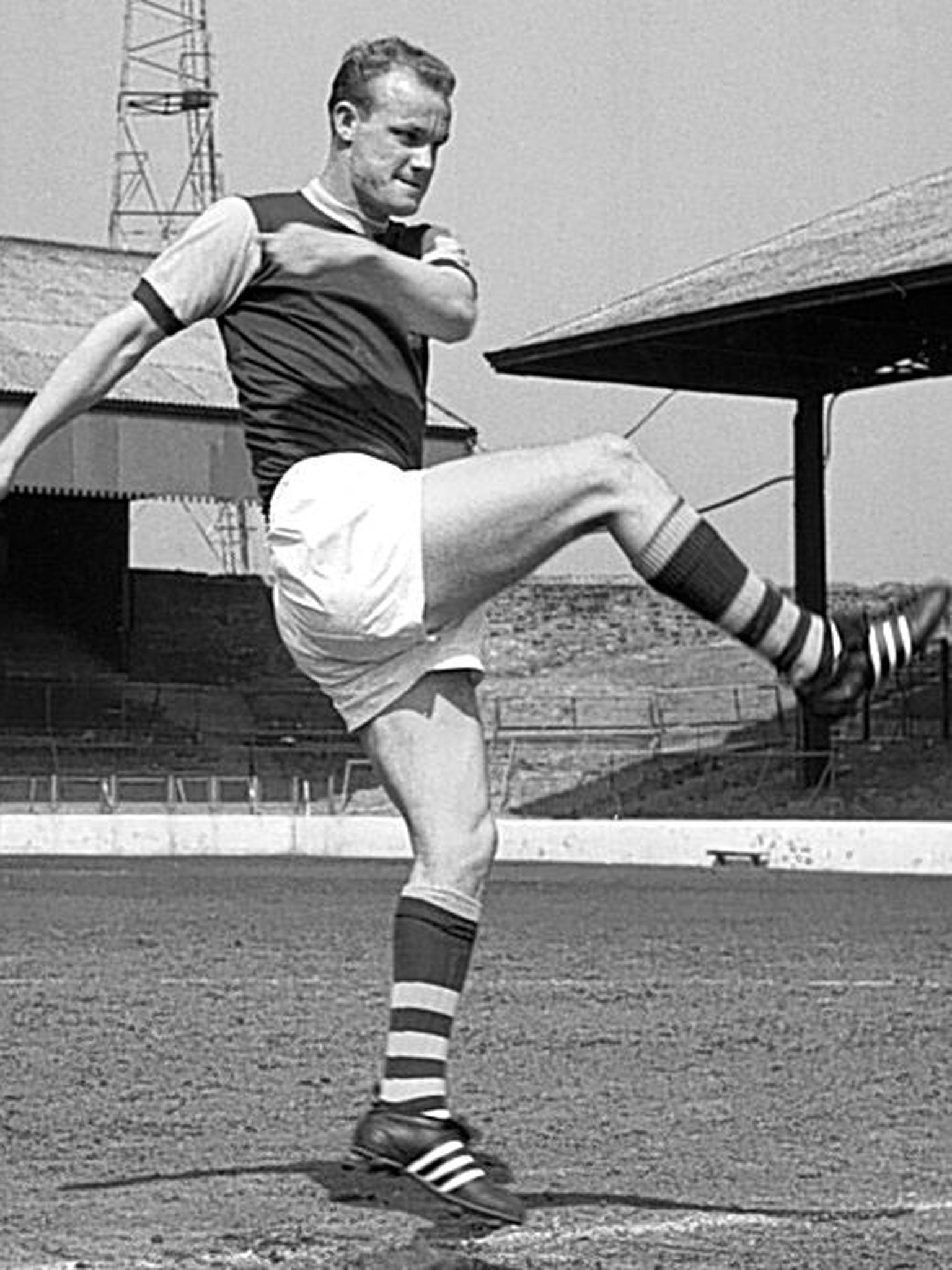Gordon Harris: Powerful and muscular footballer at the heart of Harry Potts' formidable Burnley side of the 1960s

Your support helps us to tell the story
From reproductive rights to climate change to Big Tech, The Independent is on the ground when the story is developing. Whether it's investigating the financials of Elon Musk's pro-Trump PAC or producing our latest documentary, 'The A Word', which shines a light on the American women fighting for reproductive rights, we know how important it is to parse out the facts from the messaging.
At such a critical moment in US history, we need reporters on the ground. Your donation allows us to keep sending journalists to speak to both sides of the story.
The Independent is trusted by Americans across the entire political spectrum. And unlike many other quality news outlets, we choose not to lock Americans out of our reporting and analysis with paywalls. We believe quality journalism should be available to everyone, paid for by those who can afford it.
Your support makes all the difference.As more than a few of Burnley's opponents discovered to their painful cost, it wasn't wise to trifle with Gordon "Bomber" Harris during his 1960s prime, when the Clarets were one of the most potent footballing powers in the land. Yet the stocky, muscular Midlander, whose sobriquet stemmed from a combination of his feisty nature, his blunderbuss of a left-foot shot and his sharing a surname with the RAF's wartime head of Bomber Command, was no mere tough nut.
Whether operating on the left wing, as he did early in his career, or supplying box-to-box dynamism in central midfield, Harris was skilful and perceptive, assured in his control of the ball, capable of beating a man with a subtle shimmy and much pacier than his solid frame suggested. Immensely powerful, he could offer a stirring spectacle as he ploughed through quagmires that would suck the vitality from punier physiques, and he was a telling passer, specialising in raking crossfield dispatches that switched the angle of attack in an instant.
It was hardly surprising, then, that the Turf Moor manager Harry Potts could live with his occasionally hot temper, which could boil over in the event of perceived injustice, leading to one or two training-ground clashes, spats with opponents and differences of opinion with figures of authority.
He was capped only once by England at full international level – in a friendly against Poland at Goodison Park in January 1966, when he replaced the indisposed Bobby Charlton – and was named by manager Alf Ramsey in the provisional squad of 40 for that summer's World Cup finals on home soil, but failed to make the final 22.
The determined Harris, previously honoured with two selections each for his country's under-23 side and the Football League, had worked in a Nottinghamshire coal mine after leaving school and was signed by Burnley as a 17-year-old from Firbeck Colliery in January 1958. With Potts' Clarets an ever more imposing force, he made his debut in 1958-59, scoring in a 3-1 home win over Leeds United in January, but managed only a couple of games in the glorious campaign that followed when Burnley outshone all the big-city giants to become League champions on the season's nerve-shredding last day.
However, his quality was not to be denied and it was a prime factor in the sale of left-winger Brian Pilkington to Bolton Wanderers early in 1961. That created an opening through which the younger man charged avidly to seize a prominent role as the Clarets went agonisingly close to lifting the League and FA Cup double in 1961-62, finishing title runners-up to hitherto unfashionable Ipswich Town and losing the FA Cup final to Tottenham Hotspur.
He meshed effectively with fellow forwards John Connelly, Jimmy McIlroy, Ray Pointer and Jimmy Robson, just as he would as the decade wore on with the younger likes of Willie Morgan, Andy Lochhead, Willie Irvine and Ralph Coates. Harris remained a key man as Burnley finished third in the top flight in both 1962-63, after which he switched from the wing to a central slot, and 1965-66, in which he forged a formidable partnership with the equally skilful and combative Brian O'Neil.
Having shone during the club's run in the Inter-Cities Fairs Cup in 1966-67, he was made captain for the following season only to be dropped for what the club described as disciplinary reasons before Christmas, then sold for £70,000 to top-tier rivals Sunderland in January 1968. It was a disappointing exit for a versatile, high-quality performer with a Turf Moor record of more than 300 appearances, 81 goals and countless assists, and who was still in his prime at 27.
Still, Roker Park offered a potentially grand platform for his ability, not least as he was slated for a major play-making role in place of the once-sublime Scottish maestro Jim Baxter, who had under-performed since arriving on Wearside from Rangers, thanks in no small measure to his bacchanalian excesses. Harris worked hard to fill the creative void and he was no flop, but his speed had declined and Alan Brown's team was a poor one, so that it was no shock when they slid into the Second Division in 1970.
Harris buckled down to his first season outside the premier grade and laboured conscientiously enough, but with his powers continuing to wane he lost his place early in 1971-72 and moved to South Shields, remaining with the Northern Premier League club until 1975. After leaving the game, Harris worked as a driver in the Nottingham coalfield he had left nearly two decades earlier.
Gordon Harris, footballer: born Worksop, Nottinghamshire 2 June 1940; played for Burnley 1958-68, Sunderland 1968-72; capped once by England 1966; married (one daughter, one son); died Worksop 10 February 2014.
Join our commenting forum
Join thought-provoking conversations, follow other Independent readers and see their replies
Comments